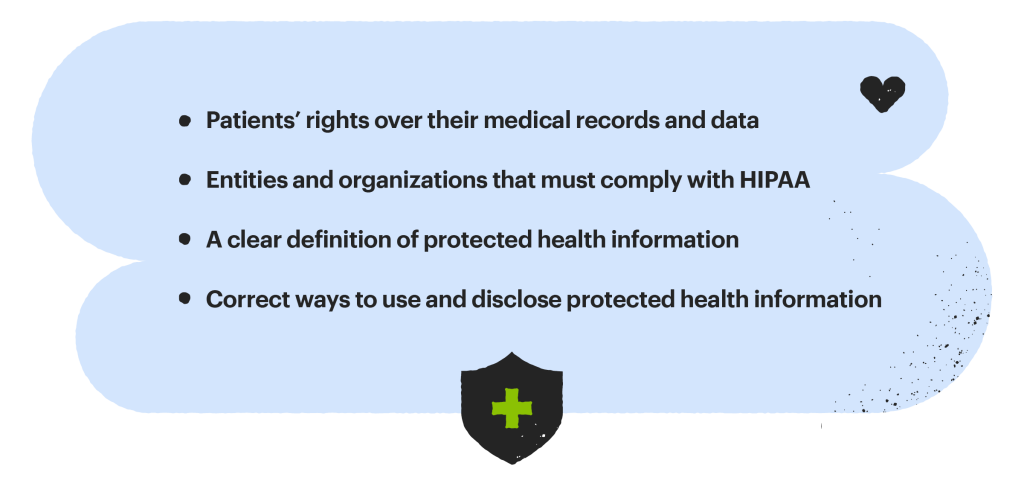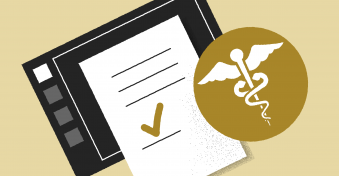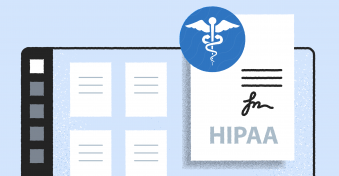Protecting your personal information from theft and fraud should be your number one concern. Personal data can be misused in various ways if not protected.
For instance, the following might happen:
- Individuals can use personal info to defraud people
- Companies can sell personal data to advertisers without user consent
- Fraudsters can track you and compromise your security
It’s obvious why protecting and having the ability to control how our information is used and shared is of paramount importance.
We live in the digital age and the need for data privacy is at an all-time high. However, studies show that some internet users and countries don’t put privacy first:
- 67% of American internet users are not aware of their country’s data protection laws
- 18% of countries around the world have no regulations on data protection
- 13% of global internet users would share their contact details if they can avoid paying for content
At the time when we use advanced technology, data privacy is more important now than ever before in numerous industries.
Some of them have been regulated by laws, including the healthcare industry. Here we have the Health Insurance Portability and Accountability Act of 1996 enacted in the USA.
If you or your loved ones share personal identifiable information with healthcare companies, you should know how they are protected under HIPAA. You should also be aware of this if you work in the healthcare industry.
In this article, we’ll discuss what HIPAA compliance is, its purpose and rules.
What is HIPAA and HIPAA compliance?
Those working in the healthcare industry often wonder, “What is HIPAA compliance?” We’re here to answer that question!
The Health Insurance Portability and Accountability Act (HIPAA) is a federal law that safeguards medical information in the USA. The law was enacted in 1996, introducing data privacy and security provisions companies would need to follow.
HIPAA is similar to GDPR in that it increases individuals’ control over their information, albeit medical in this case.
Without a patient’s consent or knowledge, healthcare providers cannot disclose protected health information (PHI) to anyone. This puts patients at ease, showing them they have power over sensitive information.
The Department of Health and Human Services (HHS) ensures companies stay compliant with HIPAA, whereas the Office for Civil Rights (OCR) enforces the law. Even with their help, there have been health data breaches in recent years.
These violations aside, HIPAA compliance is on the mind of every healthcare organization. They must comply to protect the privacy and security of protected health information available in their databases.
You should treat patients’ documents with care. Don’t only focus on business case studies—protected health information needs your attention as well!

HIPAA Authorization Form
Used 4872 times
Edit HIPAA authorization forms in a single click. Customize documents with intuitive drag-and-drop tools. Collect eSignatures and payments in real-time.
Use this templateWhat is the purpose of HIPAA?
When it was first introduced, HIPAA’s aim was to provide health insurance coverage for those in-between jobs. This was a burning issue at the time because unemployed citizens didn’t have access to healthcare.
Knowing that some of them could face medical problems, the US government wanted to ensure they could access necessary treatments.
Over the years, HIPAA got its most significant purpose — to introduce national standards that would protect sensitive patient data in the USA.
Healthcare organizations had to combat fraud and put control over healthcare data where it belonged — in patients’ hands.
Today, HIPAA compliance has risen to prominence because of cybersecurity. No one wants hackers or fraudsters to access their protected health information.
Imagine what they could do if they have access to this data! Fraud can have negative effects on victims. Luckily, HIPAA is there to ensure the protection of sensitive data.
Advanced tools are there to help you stay compliant with HIPAA as well. Instead of wasting time on documentation, you should spend it with your patients.
Use PandaDoc to generate sensitive documents and store them in just a few clicks.
To stay compliant with HIPAA and avoid security risks, healthcare providers have internal processes.
If those processes fail, they might face major financial repercussions. You won’t experience any data breaches if you follow rules set by federal law.
Before we delve deeper into three rules which HIPAA establishes, we’ll explain two important terms:
- A covered entity
- A business associate
Let’s see what they mean in terms of this federal law!
What is the difference between a covered entity and a business associate?
HIPAA applies to two groups — covered entities and business associates. These two groups need to remain HIPAA compliant. Whether or not they safeguard sensitive information is determined by the HHS and the OCR.
The best way to illustrate the difference between the two is to look at their definitions.
HIPAA covered entities
Covered entities are organizations or corporations that transmit protected health information. They provide treatment to patients, meaning they have access to sensitive data.
As people entrust covered entities with this data, their job is to safeguard it. Under the law, they must comply with HIPAA and HITECH (Health Information Technology for Economic and Clinical Health) Act.
The following organizations fall under the category of covered entities:
- Health plans – These are organizations that pay for the medical care of patients. Entities that need to enforce security measures are health insurance companies and company health plans.
- Healthcare clearinghouses – This includes organizations that process patient health information that might be in a non-standard format into a standard one
- Healthcare providers – This category refers to organizations or individuals who provide medical services and process individually identifiable health information. Those can be doctors, dentists, psychologists, pharmacies, clinics, etc.
If the above describes your company and you operate in the healthcare industry, you need to abide by HIPAA and HITECH Act. We also have another suggestion for you.
Streamline administrative processes for your staff by using state-of-the-art software like PandaDoc. This tool is HIPAA compliant, meaning you can say goodbye to inefficient methods.
Leverage our technology to speed up the process of document generation and store information on a reliable platform. You won’t need to spend hours creating new forms or templates. Everything will be available on PandaDoc!
HIPAA business associates
A covered entity might hire another organization to handle and access protected health information.
That other company qualifies as a business associate under HIPAA regulation. It needs to follow rules to prevent unauthorized access just like covered entities.
Business associates undertake certain activities on behalf of a covered entity. They need to use protected health information to fulfill their obligations. Once they gain access to data, it is absolutely necessary that they protect it.
At times, a business associate might hire subcontractors to do various tasks instead of them. The law states that that subcontractor is a business associate as well. Therefore, they need to follow rules to avoid HIPAA violations.
Business associates can perform the following tasks on behalf of a covered entity:
- Data analysis
- Quality assurance
- Claims processing
- Repricing
Before transmitting data to third parties, covered entities should sign business associate agreements. This contract clearly states what constitutes data breaches and how information should be handled.
If your company receives electronic health records or other medical data from a covered entity, you become a business associate. This means that HIPAA compliance should be your top priority.
Save time by using fill-in-the-blank templates like the ones PandaDoc offers and stop doing repetitive tasks.
Three rules of HIPAA
HIPAA is a complex federal law. The U.S. Department of Health and Human Services is strict with companies that don’t comply with it. To ensure your organization abides by the law, you need to be aware of HIPAA rules.
This law consists of three major components:
- The HIPAA Privacy Rule
- The HIPAA Security Rule
- The HIPAA Breach Notification Rule
The above rules introduce national standards healthcare organizations need to meet. Their primary concern is the protection of sensitive data.
The HIPAA Privacy Rule
The HIPAA Privacy Rule focuses on the use and disclosure of PHI. Covered entities hold this data and they might share it with business associates. Both of these organizations are required to follow HIPAA and prevent fraud and theft.
Here are the most important points covered by the Privacy Rule:

By going over HIPAA requirements, your company will avoid committing any breach. One of those requirements entails conforming to the Privacy Rule.
The HIPAA Security Rule
The Privacy Rule covers all personal health information, both in paper and electronic forms.
On the other hand, the Security Rule pertains to electronically protected health information (ePHI) only. It teaches healthcare providers how to deal with electronically stored data to prevent breaches.
Covered entities and business associates need to use administrative, physical and technical safeguards under the Security Rule.
Let’s take a look at what these safeguards include:
- Administrative safeguards – Covered entities must add risk analysis to their security management processes. Their teams must determine the impact of potential risks and find solutions that fix them.
- Physical safeguards – Only authorized individuals should access workstations, devices and facilities belonging to covered entities. Organizations should follow defined policies and procedures at their locations.
- Technical safeguards – These provisions deal with the security of information systems. As these systems store sensitive data, they need to be protected at all costs. By implementing procedures, a company can control access to technology it uses.
Medical service providers should understand how crucial it is to protect personal health information. If hackers steal social security numbers, who knows what they might do with them.
Put your patients first and use secure tools like PandaDoc to fill out patient forms, sign contracts or provide eSignatures.
The HIPAA Breach Notification Rule
According to studies, data breaches exposed over 30 billion records in 2020. If you follow security standards, you can prevent this from happening to your company. That’s why it’s essential you’re familiar with all standards and rules.
As we’re talking about HIPAA, another rule worth mentioning is the Breach Notification Rule. This rule states that organizations that experience HIPAA violations must report them. This is of paramount importance because data breaches might harm victims.
There is also a proper way to handle these violations.
For starters, any breach you discover must be reported within 60 days. If the breach affects 500 or more people, you must report it to:
- The HHS
- The OCR
- Affected patients
- Media
HIPAA violations are detrimental to anyone involved in them. You can minimize their effects if you report them in a timely manner.
Confidential and signed documents are what HIPAA wants to protect. Ensure all of your documents are signed on time by using a seamless electronic signature software like PandaDoc. This will improve the security of your docs and show to your patients you care about them.
Which information is protected under HIPAA?
If you work in healthcare, you probably have access to health information. As you know, this is sensitive data which should not be leaked to anyone.
Data security should be your top priority. Hackers shouldn’t find your vulnerabilities and attack systems that store medical information.
To do risk assessment and implement procedures, you need to know what we mean by protected health information. Only then will you be able to ensure the integrity and confidentiality of PHI.
Which information is protected under HIPAA? The federal law safeguards individually identifiable information about a patient’s health status.
Covered entities have access to this information, sharing it with their business associates. By providing the necessary data, patients can seek medical treatments.
Patients share various information with covered entities, including:
- Test results
- Diagnoses
- Past medical history
- Prescriptions
All of this is personal information and should be available only to certain individuals.
There is no need for unauthorized individuals to have access to it. Implement privacy practices to protect it from hackers and fraudsters. While you’re at it, use secure software that creates and manages HIPAA compliant documents.
Stay HIPAA compliant with PandaDoc
No one likes data breaches because they have a negative effect on your company. If they happen, it won’t be easy to regain the trust of your customers or patients.
Various industries are attacked by hackers, including the healthcare industry. This is why you should introduce internal processes that ensure you remain HIPAA compliant.
When you have patients’ trust, they are more likely to return to your hospital or pharmacy.
They might recommend your services to others, which can attract new customers. However, this won’t happen if they believe you’re not handling their sensitive data with care.
Teach your employees the importance of staying HIPAA compliant. If you want to boost their productivity, invest in software like PandaDoc that allows them to easily create patient forms in minutes.
It’s time you keep important records safe and PandaDoc can help you there!
Get in touch with us to learn more.
Frequently asked questions
-
HIPAA compliance refers to the process organizations follow to protect the personal health information of individuals.
-
The three rules of HIPAA that ensure data security and protection are:
- The Privacy Rule
- The Security Rule
- The Breach Notification Rule
-
HIPAA is a federal law that protects sensitive medical information in the USA. Its purpose is to ensure patients’ personal data aren’t disclosed to unauthorized individuals.
-
As a law, HIPAA has three major components. These are called safeguards that further describe procedures organizations should take to protect information. Those safeguards are:
- Administrative safeguards
- Physical safeguards
- Technical safeguards
-
If a healthcare provider or organization does not follow HIPAA, they might face financial penalties or jail time.
-
The purpose of HIPAA is to introduce national standards that would protect personal health information of citizens across the country.
-
HIPAA requires healthcare providers or organizations to ensure the confidentiality and integrity of protected health information they receive.
-
The HIPAA Privacy Rule wants to prevent data breaches and protect sensitive medical information. In order to do that, it explains what protected health information is. This rule also states which companies should comply with HIPAA and how they should disclose information.
-
A covered entity is an organization that provides various medical services to patients. This can be a doctor, pharmacy or health insurance company. All of them have access to protected health information (PHI). A business associate is a company hired by a covered entity to perform tasks like data analysis and quality assurance. It has access to PHI, meaning it needs to follow HIPAA.


